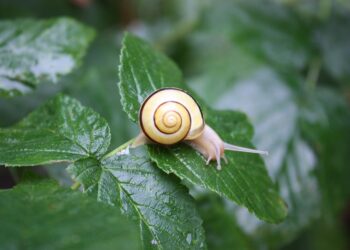Mastering Mindfulness: Essential Tips for Living a Present and Purposeful Life
In today’s fast-paced world filled with distractions and stress, mastering mindfulness has become essential for living a present and purposeful life. Mindfulness is the practice of being fully aware and present in the moment, without judgment or attachment to thoughts or emotions. By cultivating mindfulness, you can reduce stress, improve focus, enhance relationships, and find greater peace and fulfillment in your daily life. In this article, we will explore essential tips for mastering mindfulness and living a more mindful life.
The Benefits of Mindfulness
Before diving into the essential tips for mastering mindfulness, let’s first explore the numerous benefits of practicing mindfulness. Research has shown that mindfulness can have a profound impact on both our physical and mental well-being. Some of the key benefits of mindfulness include:
- Reduced stress and anxiety
- Improved focus and concentration
- Enhanced emotional regulation
- Increased self-awareness and self-compassion
- Improved relationships and communication
- Greater sense of peace and fulfillment
Essential Tips for Mastering Mindfulness
1. Start with the Breath
One of the simplest and most effective ways to cultivate mindfulness is to focus on your breath. The breath is always present in the moment, making it an excellent anchor for your awareness. Take a few moments each day to sit quietly and focus on your breath. Notice the sensation of the breath entering and leaving your body, without trying to control it. This simple practice can help calm the mind and bring you into the present moment.
2. Practice Mindful Eating
Another powerful way to cultivate mindfulness is through mindful eating. In our fast-paced world, we often eat on the go or while distracted by screens or other stimuli. By taking the time to savor each bite and fully engage your senses in the eating experience, you can cultivate greater awareness and appreciation for the food you consume. Notice the colors, textures, smells, and tastes of your food, and be fully present in the act of eating.
3. Engage in Regular Meditation
Meditation is a powerful tool for developing mindfulness. Set aside time each day to sit quietly and meditate. Focus on your breath, a mantra, or a specific sensation in your body. When thoughts or distractions arise, simply acknowledge them without judgment and gently return your focus to your chosen anchor. Regular meditation practice can help train your mind to be more present and focused in your daily life.
4. Practice Gratitude
Cultivating a sense of gratitude is another essential aspect of mindfulness. Take time each day to reflect on the things you are grateful for in your life. This can be as simple as appreciating the beauty of nature, the love of friends and family, or the roof over your head. By focusing on what you have rather than what you lack, you can cultivate a greater sense of abundance and contentment in your life.
5. Embrace Imperfection
One of the key principles of mindfulness is non-judgment. Rather than being critical of yourself or others, practice self-compassion and acceptance. Embrace your imperfections and mistakes as opportunities for growth and learning. By letting go of the need to be perfect, you can cultivate greater self-awareness and compassion for yourself and others.
Common Questions About Mindfulness
1. What is the difference between mindfulness and meditation?
Mindfulness is the practice of being fully present and aware in the moment, while meditation is a formal practice that involves sitting quietly and focusing the mind. Meditation is one way to cultivate mindfulness, but there are many other ways to practice mindfulness in your daily life.
2. How can I incorporate mindfulness into my busy schedule?
There are many ways to incorporate mindfulness into your busy schedule, such as taking short mindfulness breaks throughout the day, practicing mindfulness while performing daily tasks, or engaging in mindfulness practices such as yoga or walking meditation. Find what works best for you and make mindfulness a priority in your daily routine.
Conclusion
Mastering mindfulness is a journey that requires practice, patience, and self-compassion. By incorporating essential tips such as focusing on the breath, practicing mindful eating, engaging in regular meditation, practicing gratitude, and embracing imperfection, you can cultivate greater awareness, presence, and purpose in your daily life. Remember that mindfulness is not about being perfect, but about being fully present and aware in each moment. By mastering mindfulness, you can live a more present and purposeful life filled with peace, joy, and fulfillment.
Start your mindfulness journey today and experience the transformative power of living in the present moment.


































































